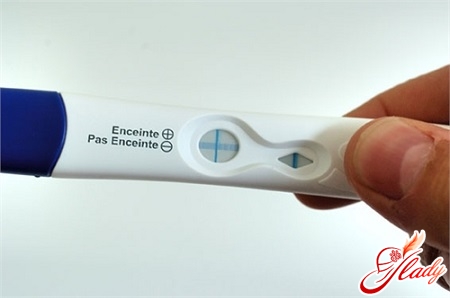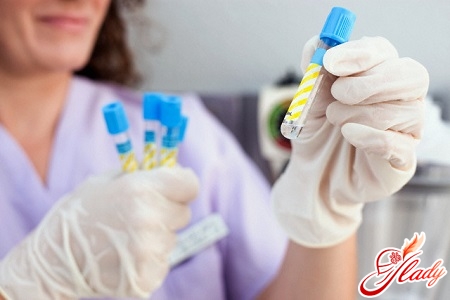 Uterine bleeding is one of the mostthe main dangers that lie in wait for a woman. Moreover, women of absolutely any age are likely to encounter them. However, both observations of gynecologists and dry medical statistics indicate that the highest probability of developing uterine bleeding is in girls in their teens or in women who are about to begin menopause. Gynecologists define profuse and prolonged uterine bleeding as "menorrhagia". Before talking about the types of uterine bleeding and the reasons that cause them, it is necessary to understand what is considered normal and what is still a pathology. As is known, after the onset of puberty and up until menopause, a woman experiences monthly menstruation, accompanied by the release of blood from the vagina. Such bleeding occurs as a result of the fact that the inner mucous membrane of the uterus, called the endometrium, peels off every month on certain days of the menstrual cycle, and the vessels of the mucous membrane of the uterus burst. As a result of all these factors, menstrual bleeding occurs. As a rule, the onset of menstruation occurs every 23 - 34 days, depending on the characteristics of each woman's menstrual cycle. Menstruation lasts on average from three to seven days. As a rule, the average blood loss per day during normal menstruation is no more than 40 ml. However, a lot depends on the individual characteristics of the body of each specific woman. Some women are less "lucky" than others - their menstruation can be especially long and, what is most unpleasant, profuse - blood loss can exceed 80 ml. per day. Of course, it is almost impossible to measure blood loss. That is why gynecologists have developed a fairly simple test that any woman can easily carry out absolutely independently. To do this, she just needs to watch the tampon or pad. If they are completely soaked with blood in less than an hour, the woman should be wary and seek help from a doctor - a gynecologist. As a rule, such intensity of bleeding occurs precisely with uterine bleeding or too heavy menstruation, which is also a fairly serious pathology that requires immediate medical intervention. A woman should never ignore such phenomena, because they can entail quite serious negative consequences for the female body. There is also a special test that is designed to help a woman assess her real condition. A woman should consult a doctor if:
Uterine bleeding is one of the mostthe main dangers that lie in wait for a woman. Moreover, women of absolutely any age are likely to encounter them. However, both observations of gynecologists and dry medical statistics indicate that the highest probability of developing uterine bleeding is in girls in their teens or in women who are about to begin menopause. Gynecologists define profuse and prolonged uterine bleeding as "menorrhagia". Before talking about the types of uterine bleeding and the reasons that cause them, it is necessary to understand what is considered normal and what is still a pathology. As is known, after the onset of puberty and up until menopause, a woman experiences monthly menstruation, accompanied by the release of blood from the vagina. Such bleeding occurs as a result of the fact that the inner mucous membrane of the uterus, called the endometrium, peels off every month on certain days of the menstrual cycle, and the vessels of the mucous membrane of the uterus burst. As a result of all these factors, menstrual bleeding occurs. As a rule, the onset of menstruation occurs every 23 - 34 days, depending on the characteristics of each woman's menstrual cycle. Menstruation lasts on average from three to seven days. As a rule, the average blood loss per day during normal menstruation is no more than 40 ml. However, a lot depends on the individual characteristics of the body of each specific woman. Some women are less "lucky" than others - their menstruation can be especially long and, what is most unpleasant, profuse - blood loss can exceed 80 ml. per day. Of course, it is almost impossible to measure blood loss. That is why gynecologists have developed a fairly simple test that any woman can easily carry out absolutely independently. To do this, she just needs to watch the tampon or pad. If they are completely soaked with blood in less than an hour, the woman should be wary and seek help from a doctor - a gynecologist. As a rule, such intensity of bleeding occurs precisely with uterine bleeding or too heavy menstruation, which is also a fairly serious pathology that requires immediate medical intervention. A woman should never ignore such phenomena, because they can entail quite serious negative consequences for the female body. There is also a special test that is designed to help a woman assess her real condition. A woman should consult a doctor if:
- The gasket or tampon is completely soaked in less than one hour, as a result, the woman has to use a much larger number of gaskets than usual.
- The woman has to wake up repeatedly in the middle of the night in order to replace the gasket.
- During menstruation, a large number of blood clots are present in the secretions.
- As a result, the woman's menstruation for sometime almost completely "drops out" of the usual way of life - can not attend work, do familiar household chores, and spend most of the time lying in bed.
- A woman feels not just tired, but really exhausted and weak.
- When examining a general blood test, a woman diagnoses iron deficiency anemia, for the occurrence of which there are no other reasons.
- During menstruation, a woman constantly experiences intense pain in the waist and lower abdomen.
The more questions a woman answers positively, the sooner she needs to seek help from a doctor - a gynecologist.
Causes of uterine bleeding
As strange as it may seem, the reasonsespecially heavy menstruations are still unknown to gynecologists. That is why such menstruations in gynecology are called dysfunctional uterine bleeding. However, in addition to such menstruations, there are quite a large number of uterine bleedings, the causes of which are well known. So, such causes can be:
- Violation of the hormonal background of the female body
In the event that a woman has a hormonal backgroundis in a normal state, an optimal balance is maintained between such female hormones as estrogen and progesterone. And it is due to this that menstruation begins on time, and blood loss during them is minimal. It is due to these above-mentioned hormones that a natural monthly modification of the mucous membrane of the uterus occurs - the build-up and subsequent detachment of the endometrium. And in the event that a woman's body has a hormonal imbalance, the endometrium grows especially strongly. And its rejection occurs in an unnatural way, not all at once, but over a certain period of time. As a result, uterine bleeding begins. It is this hormonal imbalance that leads to the occurrence of frequent uterine bleeding in teenage girls and women who are about to begin menopause. The risk of developing such uterine bleeding is highest during the first year and a half after the onset of the menstrual cycle in teenage girls. This is explained quite simply - in adolescence, the hormonal system of a teenage girl is not yet sufficiently adjusted, as it is only "turned on" in the general work of the body. And in women who are waiting for the onset of menopause, the hormonal system, on the contrary, has already ceased to function fully. In both situations, a fairly strong hormonal imbalance very often occurs, which can subsequently lead to the occurrence of uterine bleeding.
- Thyroid gland diseases
Another factor that increases the risk of developinguterine bleeding, is a violation of the correct functioning of the thyroid gland. The causes of such disorders can be diseases such as hyperthyroidism and hypothyroidism.
- Diseases of the circulatory system
Sometimes gynecologists are faced withcases in which the main culprits of uterine bleeding are various blood diseases, accompanied by a significant decrease in the level of platelets in the blood. Platelets are necessary to stop any bleeding, including uterine bleeding.
- Myoma of the uterus
In case uterine bleeding is caused bya woman has a uterine myoma, the woman's menstruation is much more abundant and prolonged. The heaviest uterine bleeding occurs with submycotic - internal - uterine myoma. In such cases, drug therapy does not bring any benefit at all. In order to alleviate the woman's condition, she is shown surgical intervention, the purpose of which is to remove the uterine myoma.
- Adenomyosis
With this disease the following occurs:the inner and muscular layers of the uterus fuse. Because of this, the area of the menstruating surface of the uterus increases significantly. But the contractile ability of the uterus deteriorates significantly. The woman's menstruation becomes extremely long, heavy and painful.
- Polyps
Quite often the cause of profuse painfulmenstruation, as well as the development of acyclic uterine bleeding. As a rule, such uterine polyps are most often observed in women of reproductive age. In order to remove them, a woman needs surgical intervention - curettage of the uterine cavity.
- Complicated pregnancy course
As sad as it is to say this, it is enoughOften the cause of uterine bleeding is a complication of pregnancy - either a miscarriage in the early stages of pregnancy, or an ectopic pregnancy, or even premature detachment of the placenta. In these cases, a woman should seek medical help as soon as possible at the nearest medical institution where there is a gynecologist, or call an ambulance.
- Oncological diseases of genital organs
Cancers such as malignantformation of the ovaries, cervix and body of the uterus, also often lead to the development of quite severe uterine bleeding. In such cases, the price of delay may be the life of the woman.
- Intrauterine contraceptives
The occurrence of uterine bleeding maybe one of the side effects of using such non-hormonal intrauterine bleeding devices as the IUD. And, in addition, if a woman using such a contraceptive takes drugs such as aspirin and other anticoagulants, the risk of developing uterine bleeding increases several times.
Visit to the gynecologist
In the event that a woman notices that herIf menstruation has become extremely painful, prolonged or excessively heavy, she should seek help from a gynecologist as soon as possible. If a woman has a special calendar in which she notes all the features of her menstrual cycle - the beginning, the end, the abundance - she should definitely take it with her. Such information will greatly help the doctor in such an important matter as diagnosing the disorder and choosing the best treatment tactics. The doctor will perform a classic gynecological examination, take a smear from the cervix of the uterus. As a rule, the doctor will prescribe several additional studies for the woman, including an ultrasound examination of the uterine cavity. Ultrasound will allow you to exclude or confirm the presence of certain gynecological diseases. In cases where a woman suffers from uterine bleeding, the doctor will definitely prescribe a blood test. The results of a general blood test will help determine whether the woman has any inflammatory process in the body, as well as whether iron deficiency anemia has developed as a result of regular blood loss. In addition, a blood test will be performed to study the hormonal status of the sick woman. As mentioned above, hormonal imbalances are often the cause of uterine bleeding. It is on the basis of such a blood test that the doctor will prescribe the necessary examination for the woman. In some cases, for an accurate diagnosis of the cause that caused the development of uterine bleeding, the doctor may prescribe a special diagnostic curettage of the uterine cavity to the woman. The treatment that the doctor chooses depends on the condition of the woman's endometrium. Also, an endometrial examination will allow you to determine for sure whether the woman has malignant neoplasms in the uterine cavity. And, in addition, such curettage is very often an excellent therapeutic tool. And after it is performed, uterine bleeding leaves the woman forever. This article will not describe methods for treating uterine bleeding, for a number of understandable reasons: the causes of uterine bleeding can be very different. And the treatment that significantly alleviates the condition of one woman can harm another. The main task of a woman is to promptly consult a doctor - a gynecologist. And everything else is the doctor's concern. We recommend reading:









